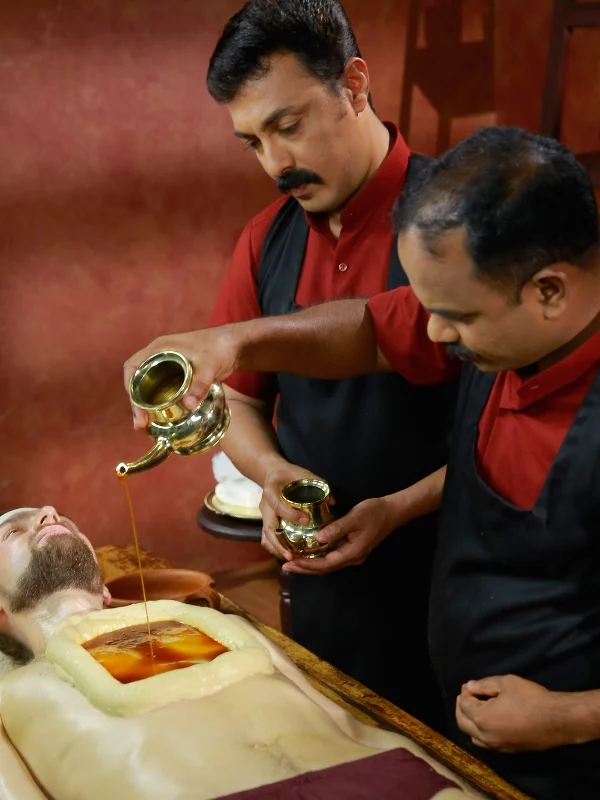Urovasthi Treatment center in Trivandrum

What is Urovasthi?
Urovasthi is a therapeutic Ayurvedic treatment where warm medicated oil is retained over the chest area using a boundary made from black gram dough. The term comes from “Uro” (chest) and “Vasthi” (retention). This localized therapy deeply nourishes and strengthens the heart and lungs, balances Vata and Kapha doshas, and is especially effective for respiratory disorders, chest congestion, and emotional imbalances such as anxiety and grief.
What are the indications?
Urovasthi is recommended for:
- Asthma and bronchitis
- Chronic cough and chest congestion
- Respiratory weakness and breathlessness
- Muscular chest pain or sternum stiffness
- Palpitations and mild cardiac complaints
- Anxiety, stress, and emotional imbalance
- Post-COVID respiratory fatigue
- Weak immunity or frequent colds
- Mild costochondritis (as supportive therapy)
What is the Treatment Procedure?
- The patient lies comfortably on their back.
- A leak-proof reservoir is created over the chest using black gram dough.
- Warm, medicated oil is gently poured into the reservoir and retained for 30 minutes.
- The temperature of the oil is maintained throughout the session for therapeutic efficacy.
- After draining the oil, the chest area is gently massaged, followed by warm fomentation if needed.
- The therapy is generally done for 5–7 days or as advised by the Ayurvedic physician.
What are the Benefits of the Treatment?
- Clears respiratory blockages and eases breathing
- Strengthens lung function and cardiac health
- Relieves muscular chest pain and tightness
- Balances Vata and Kapha doshas in the chest region
- Reduces stress and calms the nervous system
- Supports recovery from long-term respiratory illnesses
- Provides emotional grounding and improves mood
- Enhances oxygenation and energy levels
What are the Preventive or Lifestyle Recommendations?
To extend the benefits of Urovasthi:
- Avoid exposure to cold air, smoke, and dust
- Follow a light, Kapha-balancing diet (less dairy and cold foods)
- Include pranayama (breathing exercises) in your daily routine
- Stay well-hydrated and drink warm herbal teas
- Practice stress-reducing activities like meditation or gentle yoga
- Maintain an upright posture while sitting or sleeping
- Refrain from overexertion or sudden exposure to pollutants
Who Should Do and Who Should Not Do This Treatment?
Recommended for:
- Individuals with recurrent cough, asthma, or chest heaviness
- People recovering from viral or respiratory infections
- Those under high emotional or mental stress
- Office-goers exposed to dust, A/C, or respiratory irritants
- Individuals with early signs of respiratory weakness or fatigue
Not recommended for:
- Patients with pacemakers or major cardiac issues (without doctor’s approval)
- People with open wounds, rashes, or infections on the chest
- Individuals with fever, indigestion, or severe Kapha accumulation during treatment
- Pregnant women unless advised and closely supervised
- Children below 10 unless specifically prescribed
